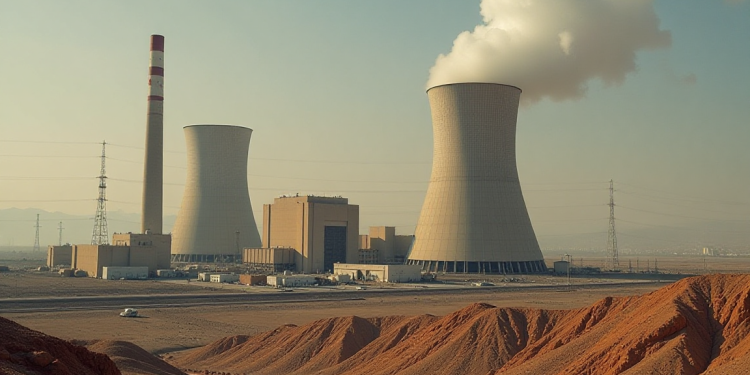The European Commission announced on Friday that European Union countries would need 241 billion euros ($278 billion) in investments to expand nuclear energy.

The Commission also stated that new funding instruments would be necessary to mitigate the substantial financial risks for private investors, according to a Reuters report.
Expanding capacity and lifespan
The Commission’s draft analysis of investment needs for the nuclear power sector, anticipated for publication on Friday, indicates that EU countries aim to increase their nuclear power capacity to 109 gigawatts by 2050.
This represents an increase from the current 98 GW.
These initiatives specifically target the expansion and maintenance of nuclear energy infrastructure, recognising its potential as a reliable, low-carbon power source.
The proposed investments are estimated to be a staggering 205 billion euros dedicated to the construction of new nuclear power plants.
This considerable sum reflects the high capital expenditure associated with developing advanced reactor technologies and establishing new facilities, including site preparation, complex engineering, and long construction timelines.
These new plants are envisioned to significantly augment existing power generation capabilities, contributing to national energy security and climate change mitigation goals.
In addition to building new capacity, a substantial allocation of 36 billion euros is earmarked for extending the operational lifespan of existing nuclear reactors.
This investment is crucial for maximising the return on previously deployed assets and ensuring a stable, uninterrupted supply of electricity while new plants are being developed.
Financing
Life extension programs typically involve comprehensive maintenance, component upgrades, and safety enhancements to ensure these facilities continue to operate safely and efficiently beyond their initial design life.
The draft outlines that these monumental investments will be sourced from a combination of public and private funds.
This collaboration aims to leverage both public resources and private sector expertise and capital to facilitate the timely and efficient execution of these critical energy infrastructure projects.
Approximately 24% of the EU’s electricity last year was generated by nuclear power.
The Commission stated that additional financial instruments were required to attract private investors, who are deterred by the risks and substantial upfront costs associated with recent European nuclear projects that have experienced budget overruns and significant delays.
It noted that a five-year delay in planned new projects would increase their estimated cost by an additional 45 billion euros by 2050.
The Commission was quoted in the report as saying:
A combination of diverse sources of financing complemented by de-risking instruments may be the response.
EU’s nuclear divide
Disagreement has long persisted among EU countries regarding the promotion of nuclear power to meet CO2 emissions targets.
The debate is primarily fueled by France, where nuclear power is the leading electricity source, and Germany, which had previously opposed it under past administrations.
Consequently, EU energy policies have generally avoided singling out nuclear power with specific incentives or targets. Additionally, the EU budget does not allocate funds for the construction of new nuclear power plants.
A 500-million-euro pilot program for power purchase agreements, open to nuclear projects, will be initiated by the European Investment Bank and the Commission, according to the draft document.
Out of 27 EU member countries, twelve currently operate nuclear reactors, with France possessing the largest fleet. Slovakia and Hungary are in the process of constructing new reactors.
Meanwhile, nations like Poland are looking to develop their first nuclear plants.
The post EU nuclear ambition: $278B investment targets capacity boost by 2050 appeared first on Invezz




